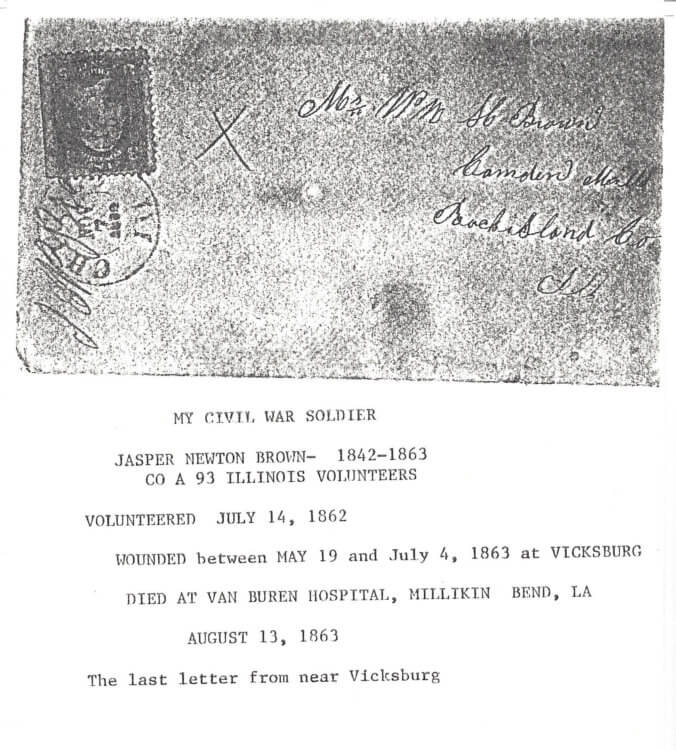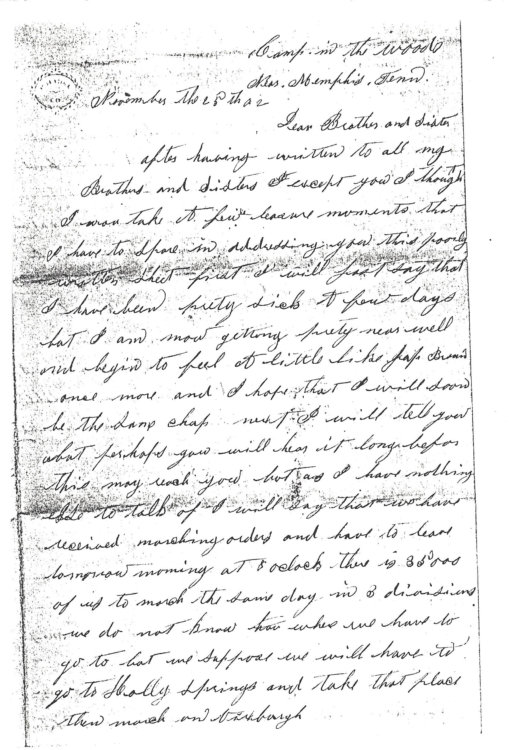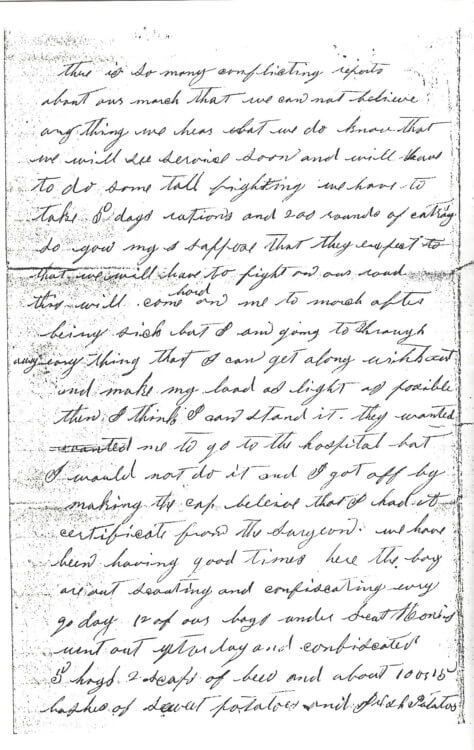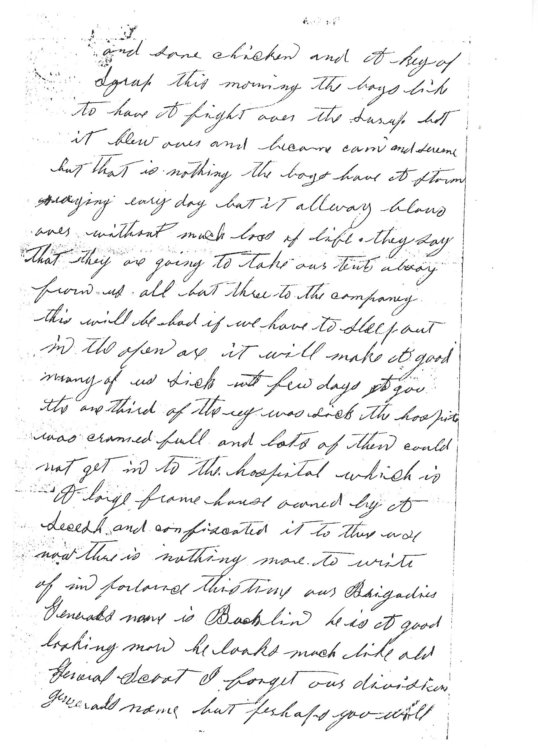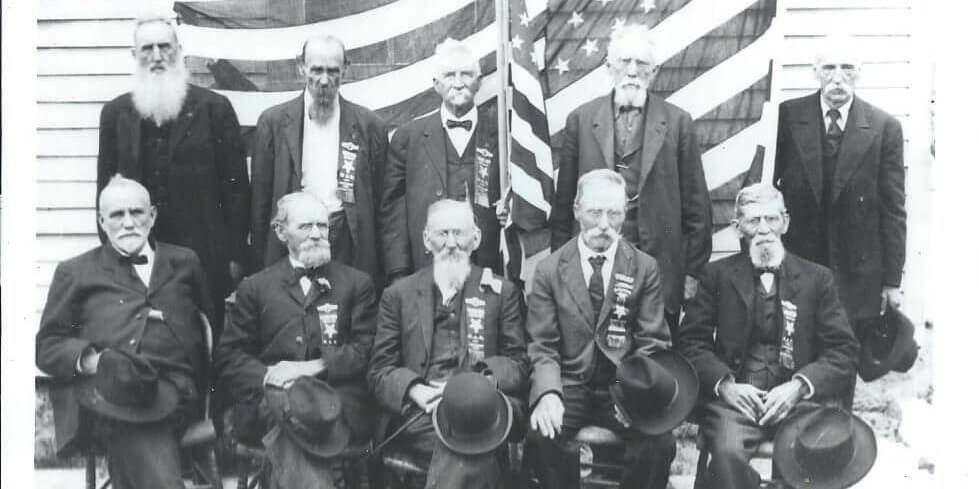Every Veterans Day, I find myself thinking about sacrifice and service to this country. As a historian and teacher with a background in military history, I am drawn to the stories of our veterans. American servicemen and women sacrifice their own freedom and liberty to preserve and protect our nation. Members of the Armed Forces can be ordered into harm’s way and have little choice in the matter. In my War on Terror class, we often talk about veterans who have served in some of America’s recent conflicts in Iraq and Afghanistan and who have had multiple tours of duty lasting anywhere from nine to 15 months. Their spouses, partners, children, and extended families undoubtedly have been impacted by their service. Even soldiers who return from war physically unharmed are often changed forever by the experience. Transitioning back to civilian life can be tough in a country where military service is voluntary.
There’s a family history
I have been thinking about my own family history and wondered about my ancestors’ records of service to this country. In past blogs, I have shared stories of my father-in-law, who served as neurosurgeon in the Vietnam War, as well as a great uncle on my mom’s side of the family who served in Patton’s Third Army during the Battle of the Bulge. But I was curious about previous generations, and I wanted to dig even deeper. There’s a family history titled “Us Davises” that I went to first. It’s hard to glean a lot of information from the document; everyone seems to have the name David, Thomas, or Evan, and you have to pay close attention to middle initials.
Welsh immigrants turned Civil War soldiers
The Davis family first emigrated by ship from Wales in the 1840s. The trip was not without incident. One young daughter accidentally fell overboard and drowned. Also, there was an outbreak of smallpox on board. Upon reaching New York, the ship was quarantined and prohibited from docking. The ship went on to Quebec. There, the family visited the graves of Americans who had died during the Revolutionary War. The fact that this visit to a military cemetery is noted in a concise family history is interesting to me, as it suggests it must have been meaningful to these new immigrants. Eventually, the family settled in southern Ohio and became farmers. The next line of the history then refers to two members of the family serving with the Union in the Civil War.
Genealogy hunt turns up war stories
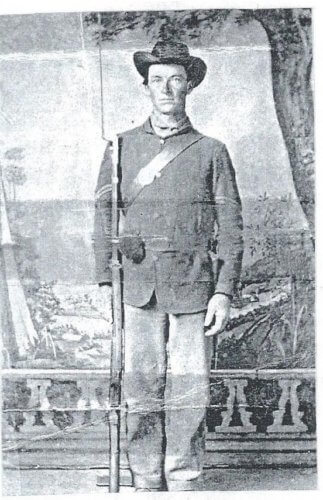
There was little other information in our short family history, so I reached out to my Uncle Dave Davis who knows their stories well. He shared with me that David J. Davis—my grandfather’s paternal grandfather—joined the Squirrel Hunter Brigade in September 1862 to assist in the defense of Cincinnati after the Confederate General Kirby Smith captured nearby Lexington, Kentucky in a raid. Shortly thereafter, he joined the Ohio Volunteer Infantry 117th Regiment that became the 1st Regiment, Ohio Heavy Artillery. David was a private—and pretty small guy from family photos. My Uncle Dave suspects he used a pick and shovel—more than his rifle—as his unit was primarily in eastern Kentucky, constructing fortifications and pulling guard duty. My grandmother’s maternal grandfather was Thomas J. Hughes. He also joined up with the Squirrel Hunter Brigade in 1862 and then joined the 179th Regiment of the Ohio Volunteer Infantry, which participated in the Battle of Nashville in 1864. There was a great uncle (Thomas E.T. Davis) who also served with Thomas J. Hughes; however, he died on December 4, 1864 in action shortly before the Battle of Nashville. It was noted that, “One of his dying requests was for a drink of water from the old spring on the home farm.”
Sometimes serving is not always by choice. Another direct descendant of my paternal grandmother was Hiram Lamborn. He was born in 1837 and traced his lineage to an ancestor who arrived in Pennsylvania in 1713 and became a Quaker. My Uncle Dave suspects that Hiram likely held anti-war views. Hiram’s unit provided provost marshal duties in Nashville. He was present at the battle of Nashville, but we don’t believe he saw any action. My Uncle Dave has researched this old history and noted that rosters of the units in which David J. Davis and Thomas J. Hughes served are full of the names of first-generation Welshmen who served the Union.
On my mom’s side of the family, the brother of my great-great-grandfather was Jasper Newton Brown. (Isn’t it amazing how quickly we can reach back into the past in just a few generations?!) Jasper volunteered for Company A of the 93rd Illinois Volunteers in 1862. We have a transcript of a letter (full letter transcribed below) written to his brother and sister with the original punctuation and creative spelling written shortly before the Siege of Vicksburg. Vicksburg was the last major Confederate stronghold on the Mississippi River. In this letter, Jasper described that he had been sick, but lied to his captain that he was well enough to join his unit on a march on Vicksburg. In the letter, one can appreciate how hard it was to serve: “There are so many conflicting reports about our march that we cannot believe anything we hear but we do know that will see service soon and will have to do some tall fighting.”
He describes how the troops were told to carry five days of rations and 200 rounds of ammunition: “This will come hard on me to march after being sick but I am going to throw out everything that I can get along without and make my load as light as possible.” He worried about having to leave the tents behind and sleep on open ground because it might make him more ill. (In the Civil War, diseases like pneumonia, typhoid, diarrhea/dysentery, and malaria caused nearly two-thirds of all deaths.) The letter finishes abruptly:
“I think there is some show for ending this unholy rebellion now as the whole army is getting under motion. They say they cannot take Vicksburg until the river rises so the gunboats can get down. They cannot run at all. We got stuck three times coming down. We have to strike one half of our tents now, so I must stop any letter writing for this time for I guess this one has to come down. I want you to write as soon as you can and often. You will know how to direct your letter. So, no more this time.
From your beloved Brother,
Jasper N. Brown to W.W. Brown.
The tent had to come down.”(Read the letter in its entirety below.)
Shortly after writing this letter, he was wounded at Vicksburg sometime between May 19, 1863 and July 4, 1963. He died a month later in August 13, presumably in a hospital.
Battlegrounds as proving grounds
Throughout the history of this nation, battlefields have been about more than war—they have been places where immigrants or disadvantaged groups have served our country as a way to prove their equality. There are countless stories of Americans who have come from the lowest rungs of the socioeconomic ladder who have fought for the United States, including Native Americans and Latinos, as well as a variety of those descended from immigrant groups like Japanese-Americans or Italian-Americans. They elected to serve despite facing discrimination from the very people they fought to defend. Groups like African-Americans fought in the Revolutionary War, the Civil War, World War I, and World War II as a way to prove their equality. During World War II, civil rights groups spoke about “Double Victory”: victory abroad against the forces of fascism and victory at home against the forces of racism. In our most recent conflicts in the Middle East and Afghanistan, women have now assumed direct roles in combat situations—a result of a long fight for gender equality.
Veterans Day is a time to reflect
Whatever one’s motive for service, I am sincerely grateful. In my teaching, I share with students these stories and examples of service, selflessness, and courage. I hope that as we approach this Veterans Day, students and parents will take some time to dig into your family history. Even if you don’t have a veteran in the family, you can still take time to reflect on the nature of service and on the freedoms that our veterans through the generations have provided for America.
Post Script: I would like to thank my Uncle David J.L. Davis for his help with this article and for providing these historic family photos. David served in six years in the Army Reserve as a Combat Engineer. I also want to thank my mom, Merrily Davis, a great historian in her own right for finding the Jasper Brown letter.
Full text of letter:
Camp in the Woods
Near Memphis, Tenn.
Nov. the 28th
Dear Brother and Sister,
After having written to all my Brothers and Sisters except you, I thought I would take a few leisure moments that I have to spare in addressing you this poorly written sheet. First I will just say that I have been pretty sick a few days but I am now getting pretty near well and begin to feel a little like Jap Brown once more and I hope that I will soon be the same chap. Next I will tell you what perhaps you will hear it long before this may reach you but as I have nothing else to talk of I will say that we have received marching orders and have to leave tomorrow morning at 8 O’clock. There are 35,000 of us to march the same day in 3 divisions. We do not know where we have to go but we suppose we will have to go to Holly Spring and take that place then march on to Vicksburg.
There are so many conflicting reports about our march that we cannot believe anything we hear but we do know that will see service soon and will have to do some tall fighting. We have to take 5 days rations and 200 rounds of catrag (????) so you may suppose that they expect we will have to fight on our road. This will come hard on me to march after being sick but I am going to throw out every thing that I can get along without and make my load as light as possible. Then I think I can stand it. They wanted me to go to the hospital but I would not do it and I got off by making the “cap” believe that I had it certified from the surgeon. We have been having good times here. The boys are out scouting and confiscating every day. 12 of our boys went out yesterday and confiscated 5 hogs, 2 (?something) of beets (or beers) and about 100 bushels of sweet potatoes and Irish potatoes and some chicken and a keg of syrup. This morning the boys like to have to fight over the syrup but it blew over and became and serene but that is nothing.
The boys have to storm raging every day but it always blows over without much loss of life. They say that they are going to take our tents away from us all but three to the company. This will be bad if we have to sleep out in the open air. It will make a good many of us sick with few days to ??? one third of the regiment was sick. The hospital was crammed full and lots of them could not get into the hospital which is a large frame house owned by a ‘Seceed’ and confiscated it to their use. Now there is nothing more to write of importance. This time, our Brigadier General’s name is Backlin. He is a good-looking man. He looks like old General Scott. I forgot our division general’s name but perhaps you will see it in the papers when we start. I think there is some show for ending this unholy rebellion now as the whole army is getting under motion. They say they cannot take Vicksburg until the river rises so the gun boats can get down. They cannot run at all. We stuck 3 times coming down. We have to strike one half of our tents now, so I must stop any letter writing for this time for I guess this one has to come down. I want you to write as soon as you can and often You will know how to direct your letter. So, no more this time.
From your beloved Brother,
Jasper N. Brown to W.W. Brown
The tent had to come down.
